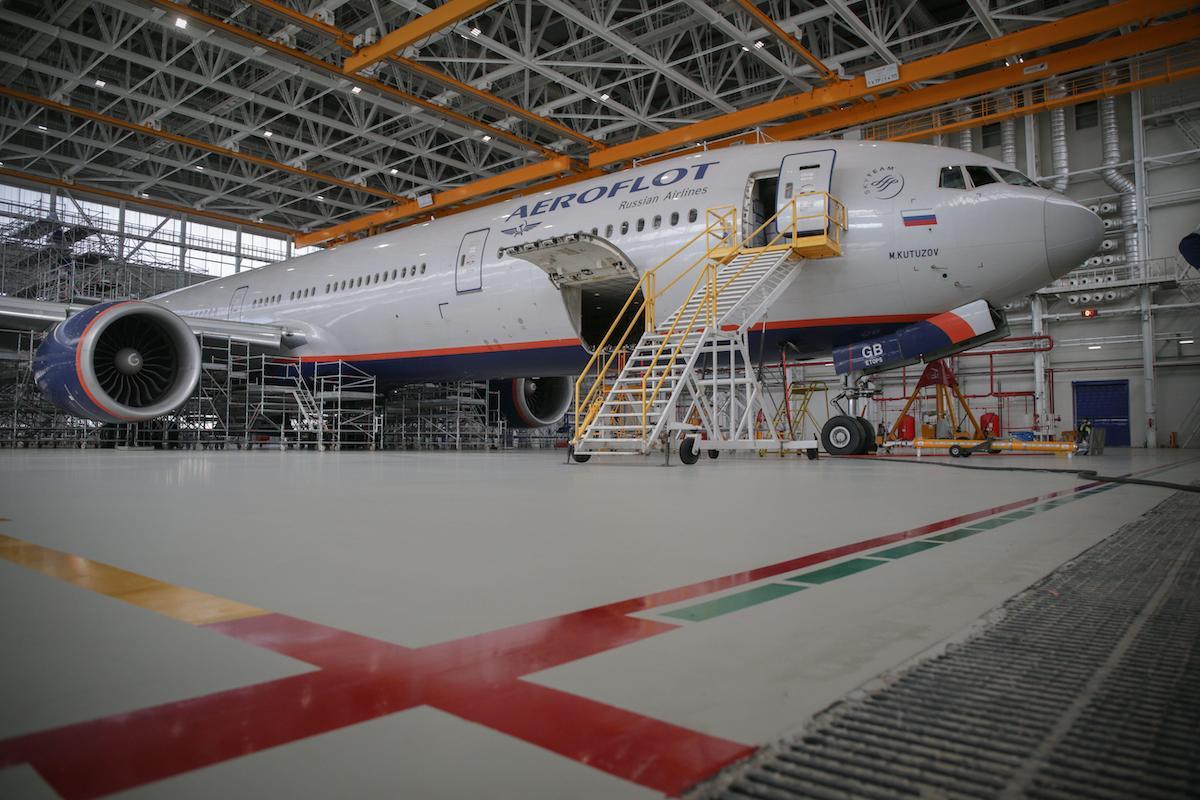Russian Regulator Approves Aircraft Cannibalization Amid Sanctions

Russian authorities have again adjusted the domestic continuing airworthiness procedures to help operators cope with sanctions.
The Federal Air Transport Agency (Rosaviatsia) has formally given approval to aircraft cannibalization, meaning that parts from grounded airframes can be re-installed on in-service aircraft.
The legislative amendments were approved Dec. 26, 2022, although the provisions related directly to cannibalization remain classified. Citing sources from Russian airlines, Moscow-based newspaper Izvestia reported that a part taken from a grounded aircraft should be tested in order to receive airworthiness approval tags, and then tested again after being installed on a different aircraft.
Rosaviatsia is now allowing the installation of non-original spare parts on Russian-operated foreign-made commercial aircraft, without seeking approval from the type-certificate holders.
The new provisions mark another step in the reorganization of the country’s continued airworthiness standards, moving it further away from Western norms.
For decades, Western-made commercial aircraft operated in Russia have been registered in foreign jurisdictions, mostly Bermuda and Ireland. The airworthiness maintenance of the aircraft was regulated by the authorities in those countries.
The situation changed in March 2022 when Western countries banned aircraft deliveries and services to Russia after its invasion of Ukraine, which began Feb. 24. In response, the Kremlin transferred about 600 Western-made aircraft to the local registry, entrusting Rosaviatsia to take care of their continued airworthiness.
The agency automatically extended the airworthiness certificates of these aircraft until the end of 2022. It also expanded the list of Russian MRO providers which could maintain and repair Western-made jets to replace suspended EASA and Bermuda Part 145 certificates.
Russian carriers appear to have found alternative ways to obtain aircraft spare parts, while Rosaviatsia allowed the installation of parts approved by two dozen foreign authorities, including FAA and EASA, as well as Aruba, Brazil, Bermuda, Canada, China, Egypt, India, Iran, Ireland, Israel, Jordan, Mexico, South Africa, Thailand, Turkey, the UAE, the UK and Uzbekistan.
From September to December 2022, Rosaviatsia inspected 90% of the Russian-operated aircraft that were previously registered abroad to prolong their airworthiness certificates for another term.




Comments